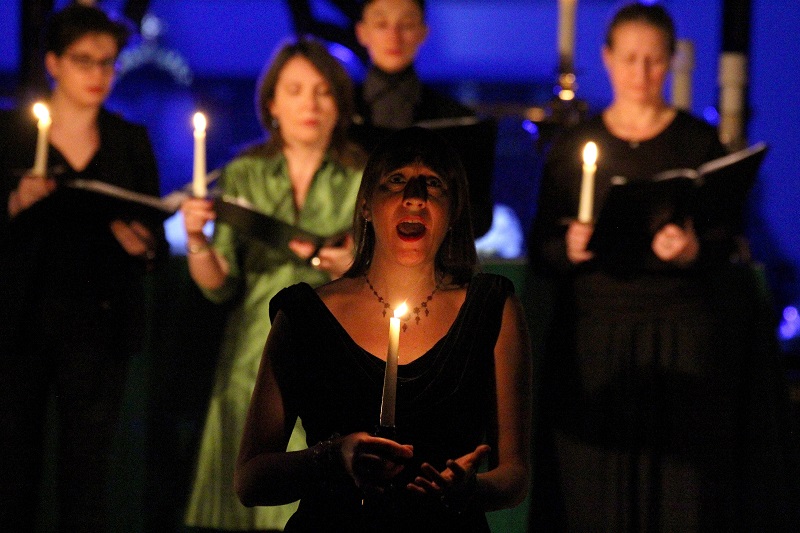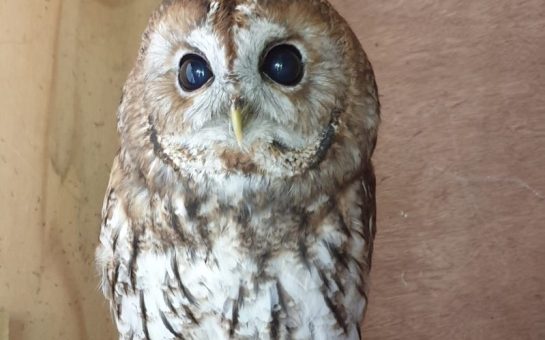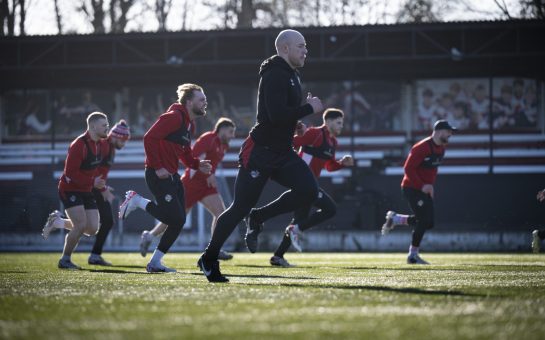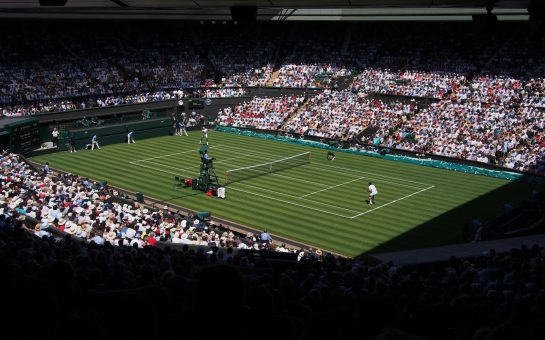Carols have long been as crucial a part of Christmas as mince pies, mistletoe and our portly, red-suited friend with the beard. But to many, their origins remain a mystery.
This December a Medieval music group are transporting Wimbledon back to the Middle Ages to unveil the little-known history of carols.
The Telling are performing the ‘Story of the Carol’ on December 5 at St. John’s Church on Spencer Hill.
The group will offer audiences ‘a different concert experience’ as they sing their way through from the carol’s beginning as a popular form of medieval song to its enshrinement in Christmas royalty.
Keen to bring Medieval music to the masses is the group’s director Clare Norburn.
She said: “People think of the carols that they know, but initially it wasn’t anything to do with Christmas at all. With most modern carols, if you went back to the Middle Ages they wouldn’t think they were carols.
“All my performing life I’ve been doing Christmas carols and it’s only recently that I thought we should try and tell the story of carols because people don’t know about it.”

ATMOSPHERIC: Candlelit concerts in beautiful settings add to the magic. Photo credit: Robert Piwko
One of the most famous early carols is The Carol of Agincourt (Deo Gracias Anglia) written in celebration of the English victory over the French in the 1415 Battle of Agincourt. The song featured in the 1944 film Henry V in which Laurence Olivier famously portrayed the victorious English king.
The biblical story of the angel Gabriel visiting the Virgin Mary played a crucial role in the carol’s development during the 15th and 16th centuries.
Clare said: “This story was really popular in music and art. The carol format was accessible to the masses so it was a really good way to translate this story into music.
“That’s why the carol format became taken over by that story. It eventually became so popular that the carol became synonymous with Christmas.”
During a period when church services were conducted exclusively in Latin – which most people couldn’t understand – carols were ‘quite revolutionary’ and more accessible as they were partly in Latin and partly in English.
“I’ve always done a lot of Medieval music and I love it. It’s kind of earthy. At Christmas we’re all busy buying presents but we also want to remember the traditions. It’s a time for thinking back about our past”, Clare said.
She added: “A lot of people love singing carols even if they’re not religious. There’s something about drawing back into being part of a community and that traditional world that we’ve kind of lost.”
The Telling put great emphasis on their innovative and intimate performance style, aiming to make them ‘not like concerts with people just sitting in rows’. The singers move around the audience guided by candlelight, creating a dynamic and lively atmosphere.
Clare said: “We’re all so busy leading crazy lives so it’s lovely going along to something really local and just be taken into a different kind of world.
“Hearing really good music in a beautiful setting by candlelight is magical.”
The group will perform a variety of early carols as well as some more modern ones. Although carols were first invented on our Sceptered Isle, the performance will echo the carol’s spread across Europe. Multiple languages will be sung, including Catalan, Spanish, French, Latin and German.
The Telling were formed in 2009 and draw on a pool of musicians and performers for their numerous different shows. They have performed at festivals all around the country and have established residencies in locations such as Hastings, Liverpool and Devon.
The ‘Story of the Carol’ is at 7.30pm on December 5 at St John’s Church, Wimbledon. Tickets are available here.
Feature image by Robert Piwko.




